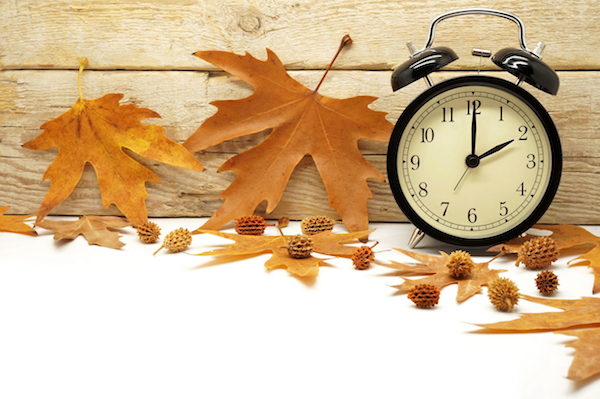Time To Turn The Clocks Back

It’s that time of year again, folks. Every year, we observe Daylight Savings Time (DST) and when it comes time in the Fall to “fall back” or set your clocks back, many people find their schedules thrown off. While it seems like just one hour, it can be a real pain when that time comes and you find your day, even week, is out of whack. This year we “fall back” on November 1.
Resetting the biological clock is a job easily done; however, altering the biological clock disrupts the normal functioning of our bodies, especially when it comes to our elderly population.
Elderly can find it challenging to adapt to the fall back. Their biological clock is conditioned as per the DST; hence, sleeping for another hour becomes a task. This alteration to the circadian rhythm has a negative impact on their health.
IMPACTS:
Appetite
Hormones like Ghrelin and Leptin are the key controllers of our appetite – the former affecting our cravings and the latter making us feel satiated. Fall back results in the imbalance of these hormones, which, in turn, affects the appetite. This is more harmful to the elderly as a nutritious and timely diet is a must for them.
ASPS is a circadian rhythm disorder that leads to fatigue, making the person sleep before bedtime, and make them wake up very early. Eventually, they get trapped in this vicious circle.
Irregular sleeping patterns impact mental health, which is evident in our mood swings. Dejected mental health adds to the physical feebleness of the elderly. Sometimes, it also results in depression and other mental illnesses.
Difficulty in sleeping results in the release of the stress hormone cortisol. Cortisol increases inflammation, which is dangerous for people who are at the risk of heart attacks.
This information might perturb the minds of the elderly, but it is the little things that count, and if small changes are made in the lifestyles, then our elderly will be able to conquer all these complications and emerge as a healthy adult.
The elderly should start altering their schedules beforehand. They should sleep 15 minutes later than their usual bedtime so that when the time is reverted, they won’t have to make a significant change in their schedules.
Not only are they a great snack, but they are good at increasing the serotonin level, which lowers stress, resulting in a better mood, followed by a sound sleep.
Who can resist sleep when the lights are dim, and the room temperature is apt. Creating such a sleep-inducing environment will help you to stay in bed for that extra hour. Not only this, but turning all the electronic devices off an hour before you go to sleep will make the body fall asleep longer.
These are the two most important factors that help maintain a healthy life. Our circadian rhythms are governed by light; it gives our body an indication that it is time to wake. Moreover, natural light also keeps the body’s rhythm in check. Secondly, the elderly should stick to cardiovascular exercises to ensure sound sleep at night.
Let us focus on the silver lining! Small changes make a big difference, eventually making our lives much better and healthier.
Happy “Fall Back”!
- How Seniors Can Feel Empowered in a Digital World with Accessible Technology
- February Is American Heart Month
- Thriving as a New Caregiver: Self-Care Secrets Revealed
- Bridging the Gap: Supporting Seniors Without Nearby Family
- Distance Caregiving Simplified: Modern Strategies for Compassionate Support
FREE BROCHURE Today!
